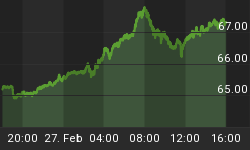Warren Buffett, probably the world’s most successful investor, a man noted for the conservatism of his investment policy and aversion to high tech, wants out of coal? Buffett’s Berkshire Hathaway controls a string of electric utilities that, in the past, burned plenty of coal.
One of his largest utility holdings, PacifiCorp controls coal burning utilities throughout the west. It wants to phase out coal-burning power stations in Wyoming. Reason: according to a PacifiCorp official, a combination of renewables and energy storage is “really lower-cost than continuing to operate some of our existing fleet.” Notice the wording. The official did not say that the renewable package is cheaper than building a new coal station. He said that is was cheaper than running their largely depreciated coal plant built at low costs decades ago. “Our customers would… save money… by pursuing these… alternatives…” the executive added.
The announcement came in recently filed integrated resource plan (IRP), a long range planning document. Typically, no surprises in these documents. But not this time. Furthermore, PacifiCorp did not propose the usual utility solution: to replace the coal units with gas-fired stations. The company intends to shutter 8,100 MW of coal generation and replace them with wind, solar and battery storage. The IRP claims that continuing to burn coal is “inconsistent with reliable, low cost service.” We don’t think reliability was the main concern, here. Simply stated, coal is no longer competitive with renewables. That would be an astounding conclusion because PacifiCorp operates mine mouth stations located at low cost mines. No railroad transport costs for the coal., which made a big difference. If those stations are no longer competitive with renewables plus storage, where can coal compete as a boiler fuel?
But there is a big difference between lower fuel costs, like mine mouth coal, and zero fuel costs, like wind and solar. Once the capital costs between the competing technologies becomes even close, the lifetime operating savings or renewables become impossible to ignore. And if the capital cost of renewables continues to decline, the economics simply become even more compelling.
The difference between coal fired generation versus renewables is like the difference between two, identical automobiles except that the conventional one requires frequent trips to the gas station and the other does not. We suspect that consumer preferences would shift to the latter.
Wyoming, where most of the plant closures will take place, has not taken kindly to the proposal. The state depends heavily on coal revenues of roughly $1.50 per ton mined. Tonnage has already fallen from 400 million to 300 million tons and the accompanying loss of revenue is straining the state budget. Loss of high paying coal jobs is another worry. The state already passed a law requiring plant owners to seek buyers for plants they intend to close. That law, of course, does not address the problem: if the plants cannot compete, who would buy them?
Almost 40 years ago, the British tried to keep the coal industry open in a competitive market, and they could not. The politicians who tried were the British Conservatives, who hated the miners’ unions and claimed to believe in competition and free markets, but could not overcome the fact that coal was not competitive against natural gas.
The small “C” conservative in Wyoming are learning the same lesson— either abandon coal or admit that everyone should pay more for commodity electricity. To complicate the matter, several neighboring states have passed laws that will close off sale of coal-fired electricity to those states. That will make it harder for PacifiCorp to find buyers for the stations. So, when the state regulators have to deal with PacifiCorp’s IRP , what will they say?
In a funny way, the surprise, here, is what is missing, by which we mean the absence of “greenwashing”, or any environmental pretense whatsoever. They are closing the coal stations, in some instances two decades sooner than planned, in the heart of coal country. And not one word about decarbonization as a justification.
The PacifiCorp IRP reminds us of a simple fact of life in commodity businesses. That is, the lowest priced producer always wins. And right now, it looks as if renewables are cheaper than coal.
By Leonard Hyman and William Tilles for Oilprice.com
More Top Reads From Safehaven.com:
















